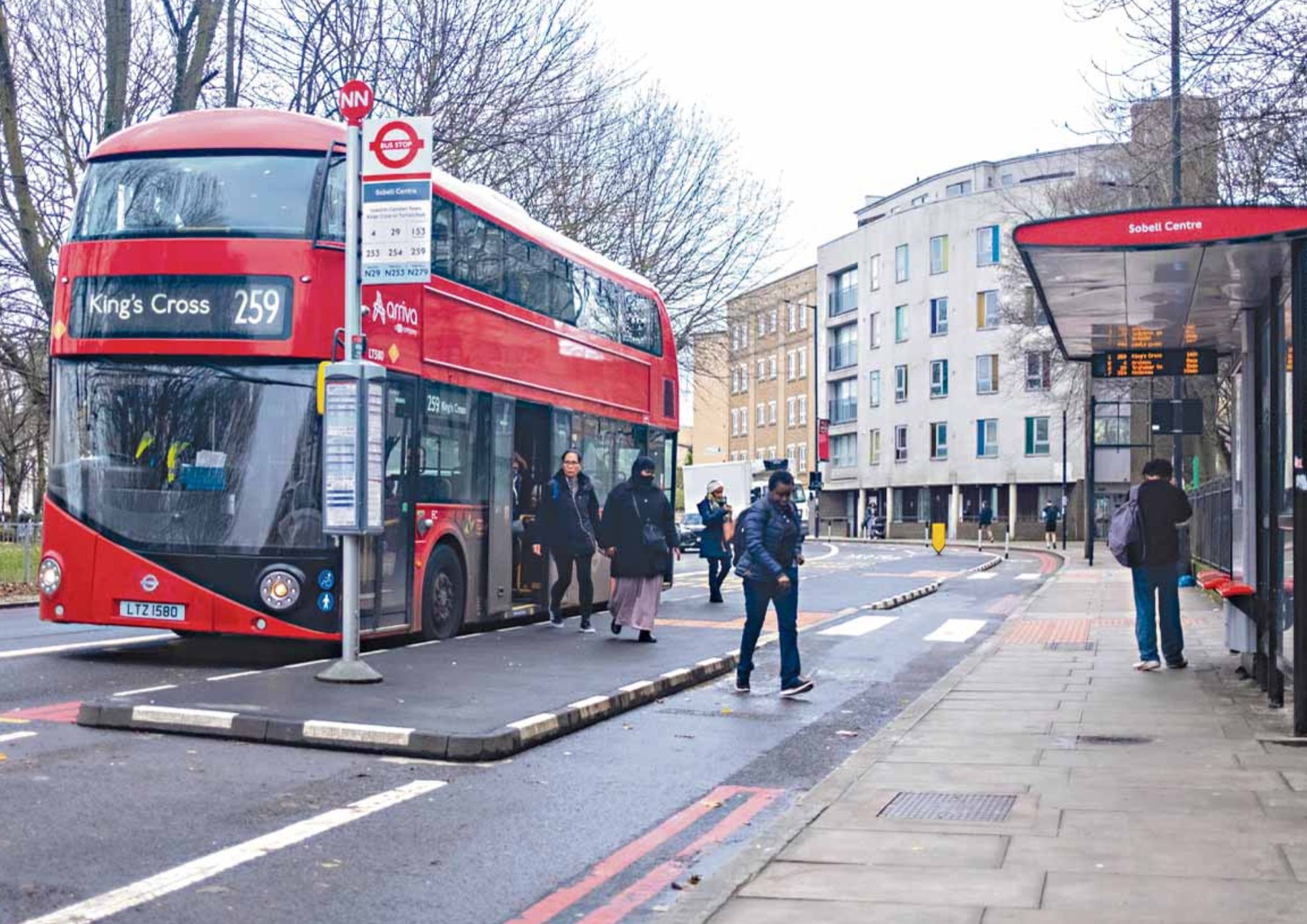Plea to end ‘floating’ bus stops
Cycling campaigners say there are a 'low' number of collisions
Monday, 14th July 2025 — By Tom Foot

The floating bus stop near the Sobell Centre
A PAUSE on the roll-out of floating bus stops does not go far enough, say campaigners warning that the capital was being turned into an “urban velodrome” for reckless cyclists and scooter riders.
The National Federation of the Blind of the UK said it welcomed the government’s announcement but said it did not go far enough.
The group waged a relentless campaign including delivering several petitions to the prime minister in Downing Street.
Campaigns chief Sarah Gayton told Tribune: “It’s so easy to ignore blind people. Their voices get ignored. Their concerns get sidelined. When they are not on the street they are not missed.
“This fundamentally has to change. Blind people are part of society just like everyone else. We need to remove all these barriers. This victory is just the start. We welcome the pause but more must be done.”
The government’s pause relates to so-called “shared use bus border” (SUBB) set up where the cycle lane runs across the front of the bus stop, between the shelter and the kerb where buses stop.
Ms Gayton said safety concerns about the floating bus stops had led to one being taken out in Islington in 2016.
She said the set-up appeared to be designed to cause conflict between pedestrians and cyclists, adding: “Blind people can’t drive, they can’t cycle – and now they can’t get on the bus because they have to run the gauntlet.
“They have turned the city into an urban velodrome. It’s horrendous because the majority of cyclists don’t stop. They tried to merge the pavement with the cycle lane – even to navigate it is really difficult.
“We think there needs to be a lot more thought put into all of this. We need to get cyclists on quieter routes rather than main roads.
“They think we have been given a win. They think they are saying the right things. But they need to put a complete halt to it.
“But ultimately we are concerned about the people who have overseen all of this from the beginning. Are they the ones that are going to be looking at this during the pause? If that’s the case it’s just a big massive tick box. It’s been such a wasted opportunity to make things safer.”
Shocking footage of a blind person being ignored at a crossing by cyclists whizzing through floating bus stops emerged this week.
There are also concerns around Park Lane where a recently installed cycle way is causing chaotic scenes.
“It’s a behaviour issue at its core,” said Ms Gayton, who said she had lost count of how many petitions had been delivered to Downing Street in recent months.
Simon Munk, head of campaigns and community development at the London Cycling Campaign, told parliament last month that floating bus stops were not dangerous.
He said: “Indeed, they appear to have very low collision rates, and are safer for pedestrians than many other road features not under scrutiny in general – side road entrances, zebra crossings, signalised junctions, pedestrian refuges.”
There are 164 floating bus stops in the capital, according to the London Assembly.
A Department for Transport spokesperson said: “The safety and accessibility of our roads and pavements is an absolute priority.”
They added: “That’s why the government will ask all local authorities in England to halt the implementation of floating bus stops until new statutory guidance is created.”